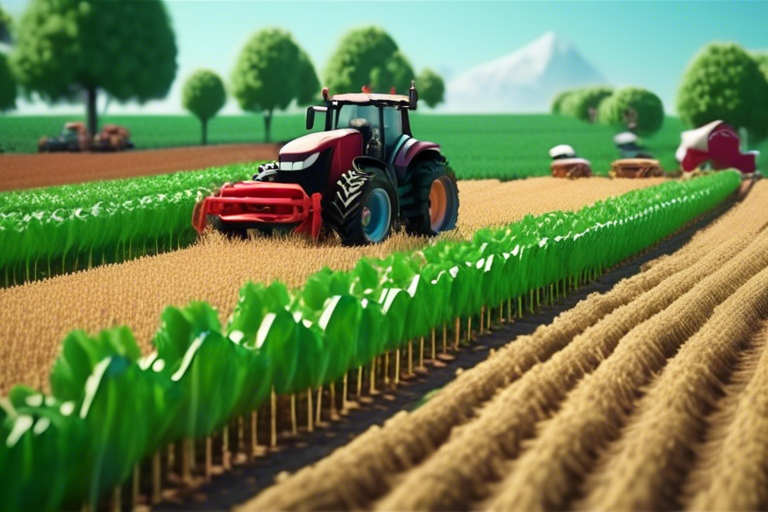The Transformative Power of AI in Agriculture 🌾
The potential of AI in various industries is vast, with one of the oldest and most crucial sectors, agriculture, benefiting from its transformative power. A new study suggests that “edge AI” could revolutionize farming practices, increase productivity yields, and help achieve sustainability goals across the global food chain.
What is Edge AI? 🤖
In essence, edge AI involves programming AI algorithms directly on local devices at the edge of a network, opposed to centralized data centers.
The Impact on Sustainable Farming 🌱
The integration of sensors and edge AI in smart farm vehicles and machinery enables precise dispensation of optimal quantities of irrigation water and agrochemicals to individual plants or specific areas. Ultimately, this advances sustainability strategies on farms by reducing water, fertilizers, and agrochemicals.
- AI applications can also operate on Internet-of-Things sensors placed throughout farm facilities or in the field.
Benefits of Edge AI 📊
Edge AI offers a range of advantages, including real-time data delivery, quicker decision-making, enhanced network reliability and privacy, as well as improved energy efficiency.
The Study Findings 📖
Published in Nature Sustainability, the research addresses the challenge of feeding a growing population, expected to reach 9 billion by 2050. International scientists believe that edge AI presents a promising solution to improving food resource efficiency sustainably.
- The study highlights potential enhancements in pest control, nutrient management, and plant breeding.
- For instance, a high-throughput computer vision camera can rapidly categorize plant types for cross-breeding, accelerating the development of weather-resistant crop varieties.
The Challenges Ahead ⚠️
Despite its promise, current systems may struggle to support edge AI deployment due to the necessity for high-quality data collection, robust algorithms, and purpose-built hardware that is not currently available. Additionally, energy demands pose a constraint for AI.
- Edge computing requires sharp AI models and algorithms, alongside hardware and infrastructure support, highlighting the need for energy-efficient computer hardware.
Societal Considerations 🌍
While edge AI could increase global food production and reduce resource waste, concerns exist about widening the digital divide between developed and developing regions. Policies ensuring equitable access to such technologies and involving farmers in the design and implementation process are crucial, according to the study.
Hot Take 🔥
Embracing edge AI in agriculture could pave the way for a more sustainable and efficient food production system, but challenges such as technology support and societal implications need to be addressed to ensure equitable access and successful implementation.





 By
By

 By
By
 By
By

 By
By